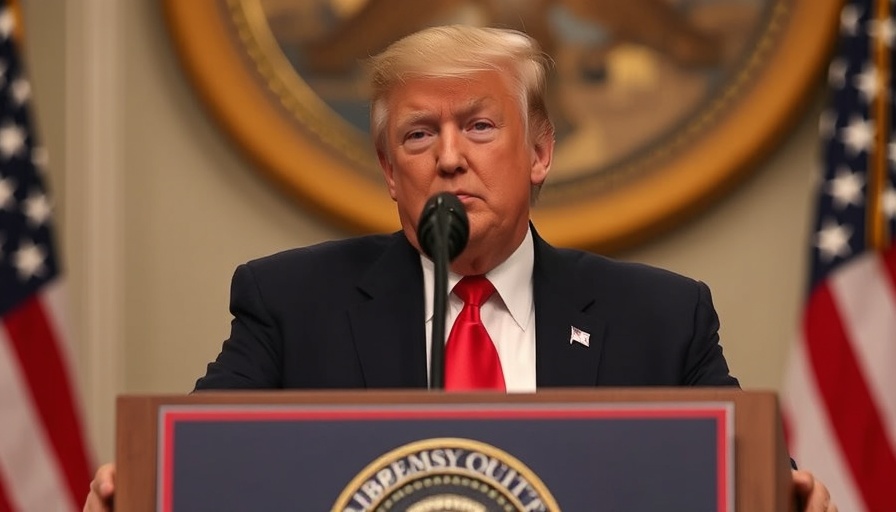
Rumble Applauds New Visa Restrictions: A Stand for Free Speech
In a significant shift towards the protection of free speech, Rumble, the video-sharing platform, has expressed strong approval of President Trump's recent decision to limit visa access for foreign nationals who partake in the censorship of Americans. Announced on May 28, 2025, this policy aims to deter those who attempt to undermine freedom of expression, especially critics of foreign governments.
The Context of Censorship in Today's Digital Age
As content moderation and censorship concerns escalate across various social media platforms, the necessity for a robust defense of free speech has never been more crucial. Rumble's CEO, Chris Pavlovski, highlighted the importance of this decision, underlining that many individuals are forced to navigate digital spaces fraught with censorship. The platform's own legal battle with Brazilian Supreme Court Justice Alexandre de Moraes illustrates a broader struggle against attempts to suppress free speech by foreign entities.
A Broader Reflection on International Free Speech
This announcement is not just a political maneuver; it also reflects an essential debate about the global state of free speech. As countries grapple with how to manage the power of social media, incidents such as the suspension of Rumble accounts due to governmental pressure underscore the precarious position of platforms that prioritize free expression. Rumble's stance resonates with many advocates of free speech, who view this legislation as a pivotal step forward.
Implications for Investors in Media and Technology
As Rumble and similar platforms navigate these turbulent waters, investors should consider how the evolving regulatory landscape will affect tech companies and digital media. The increased attention on freedom of expression could lead to a surge in investment opportunities within protective media technologies and platforms focused on transparency. By monitoring these trends, investors can position themselves strategically to take advantage of upcoming market shifts.
The Role of Technology in Advocacy
Technological platforms are at the forefront of advocacy for freedom of speech. Companies like Rumble, by defending their users' rights, promote a culture of accountability and transparency in media. Furthermore, as technology evolves, we may witness new innovations that empower users against arbitrary censorship, potentially disrupting traditional media landscapes.
Possible Future Trends in Censorship and Regulation
It’s vital to explore potential future trends concerning censorship and regulatory measures. Given the increasing governmental scrutiny of social media, companies in this space need to stay agile. Watch for movements advocating for user rights and examining the ethical implications of content moderation. As these trends unfold, they could shape new business models that align with a commitment to free speech.
Engaging Stakeholders in the Free Speech Conversation
vEngagement from diverse stakeholders—ranging from policymakers to tech innovators—will be crucial to address the challenges associated with censorship in digital media. As Rumble continues to advocate for free expression, it invites a broader conversation on how platforms can fulfill their roles responsibly. These discussions will undoubtedly spark greater awareness and action among affected users and international communities.
In conclusion, as Rumble champions its fight for free speech, its developments spotlight the confluence between technology, freedom of expression, and financial potential. Amidst evolving regulations, it's essential for stakeholders to remain vigilant and actively engage in dialogues that support the principles of free speech.
 Add Row
Add Row  Add
Add 



Write A Comment